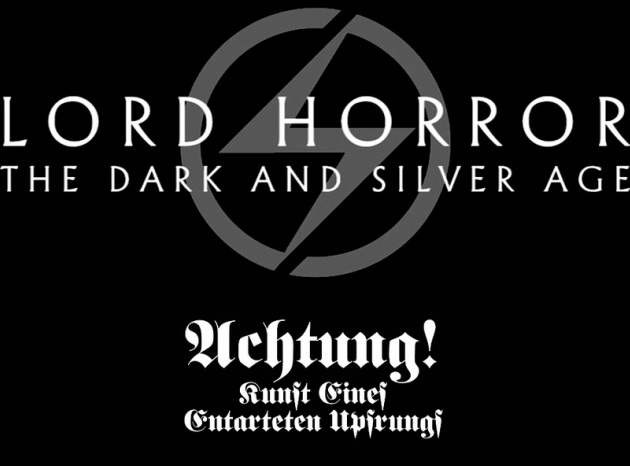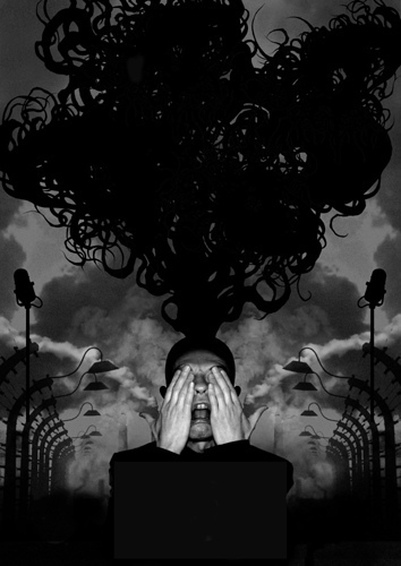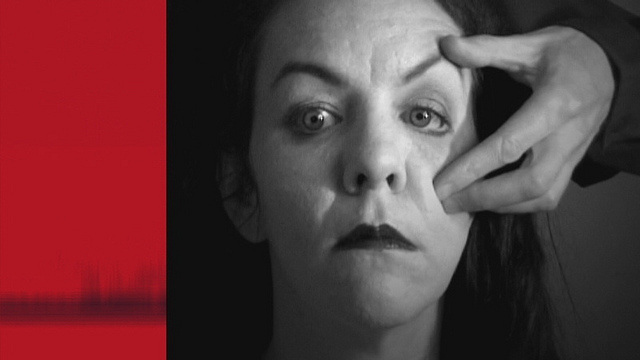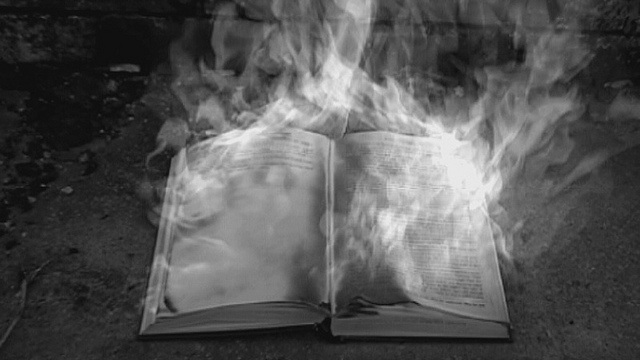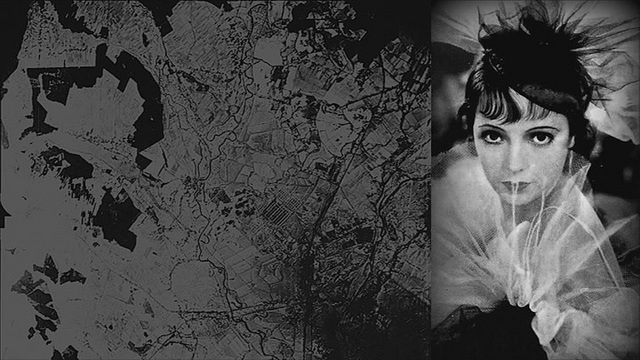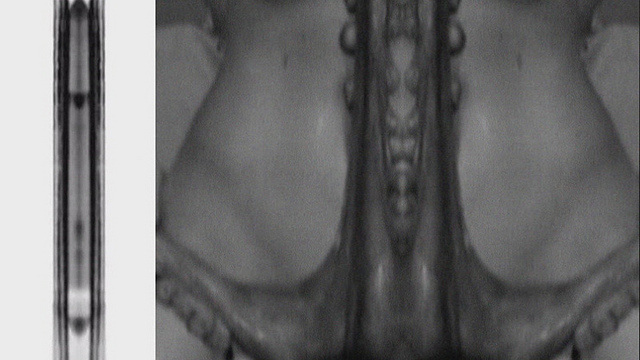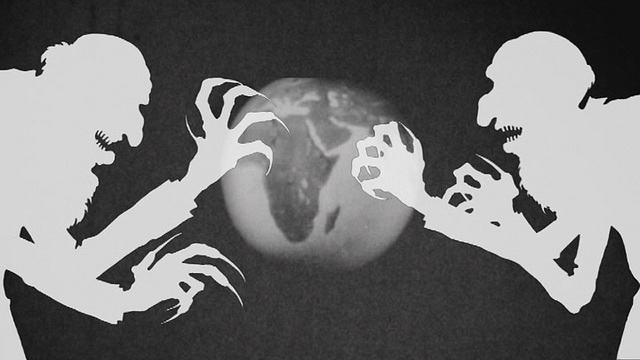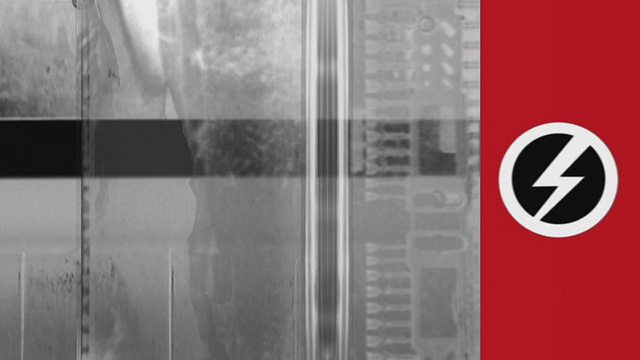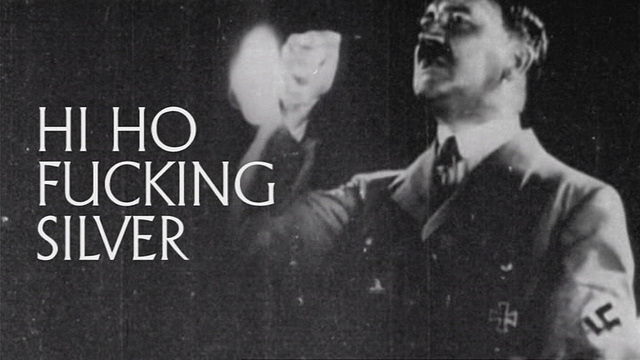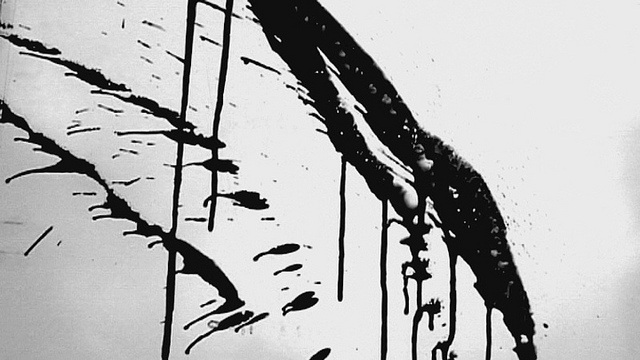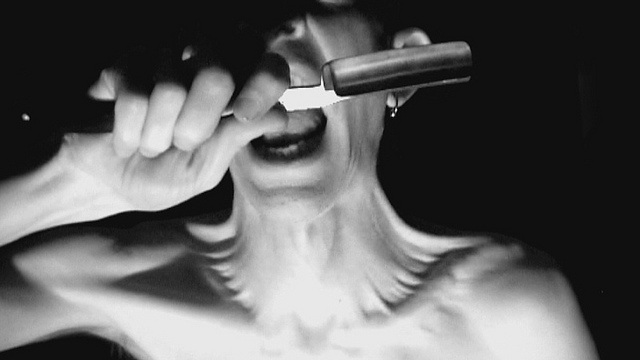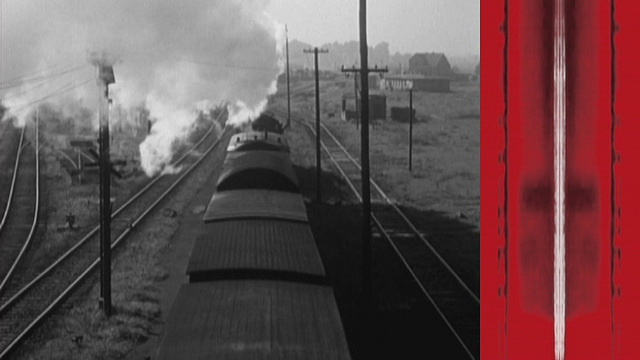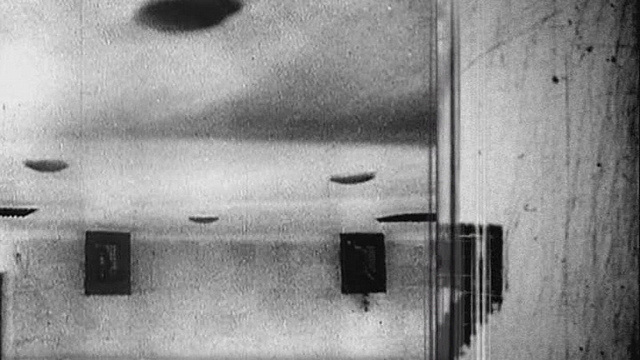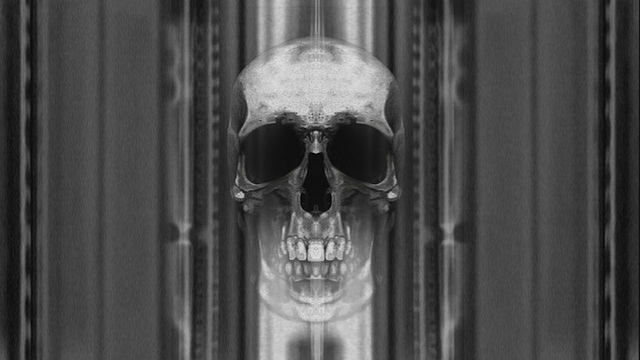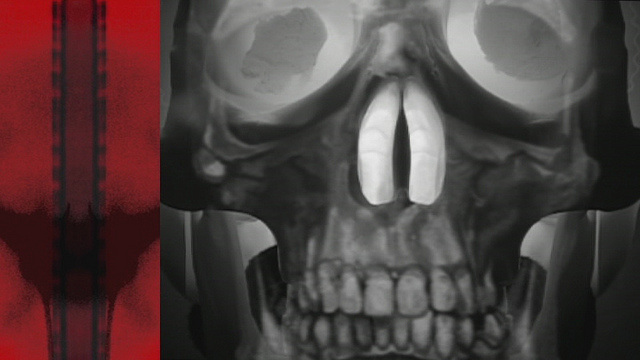SWINGING LIKE TARZAN THE APE MAN FROM THE GALLOWS
WE DEPART ON A MR TOADS WILD RIDE
DEEP INTO THE BOWELS OF THE HOLOCAUST
IT WILL END IN TEARS AS IT INEVITABLY ALWAYS DOES
Dr Richard Dunston
LIKE PROPAGANDA, THE VIDEO TUNES IN ON AN EMOTIONAL FREQUENCY,
WATCHING IT, I LAUGHED, I GREW SAD, I WAS DISTURBED, I FELT INSPIRED
Keith Seward
WITH FASCISM AND RACISM IN THE 20TH CENTURY
James Winshaw
LORD HORROR – THE DARK AND SILVER AGE (2010)
A SAVOY KUNST KREIG PRODUCTION
RUNNING TIME | 51m / 37s (25 FPS / PAL)
VIDEO FORMAT | 16:9 PROGRESSIVE ANAMORPHIC WIDESCREEN
AUDIO FORMAT | 2 CHANNEL STEREO
WARNING
THIS FILM CONTAINS STROBING AND IS NOT RECOMMENDED
FOR THOSE WITH PHOTOSENSITIVE EPILEPSY
ADULTS ONLY
DUE TO SOME CONTENT THE FILM
IS NOT SUITABLE VIEWING FOR CHILDREN
If you are not already familiar with SAVOY and their LORD HORROR works
I highly recommend that you read Keith Seward’s excellent essay HORROR PANEGYRIC
The essay is a good introduction to SAVOY (as a waywardly conceptual publishing company)
and establishes the literary context in which the LORD HORROR works can be read.
The essay can be read by clicking here
HORROR PANEGYRIC
For further information I recommend Savoys website which features an archive of articles from the media,
an in-depth history of the company and an online shop from which their products can be ordered.
Visit the SAVOY website by clicking here
SAVOY
The film maker GARETH JACKSON can be contacted directly via this email address
[email protected]
Please remember to include LORD HORROR THE DARK AND SILVER AGE in the emails subject line
or your email will be regarded as SPAM and will NOT be read
AS OF [ 17 / 10 / 14 ] THIS FILM IS NOW
UNAVAILABLE
This film has been obligated to be withdrawn from free public distribution in compliance with the legal demands of the actor Julian Bleach.
‘I am an artist and should be exempt from shit.’
P.J. Proby
UNJUSTIFIED
IN DEFENCE OF LORD HORROR: THE DARK AND SILVER AGE
A RIPOSTE BY DR RICHARD DUNSTON
DISCLAIMER
The statement from the actor Julian Bleach is sourced from an email to Savoy Books which was forwarded (as all correspondence regarding the matter was) to the artist / filmmaker Gareth Jackson in an attempt to resolve the dispute as quickly as possible.
GARETH JACKSON WOULD LIKE TO MAKE IT CLEAR THAT SAVOY BOOKS HAVE PLAYED NO PART IN THIS RESPONSE.
Statement from Julian Bleach (italics) with Dr Richard Dunston’s riposte to his statement (in grey) >
Nobody has the moral or legal right to use the work of a living performer without consent.
The very 19th Century notion that art must seek the originator’s consent to appropriate existing material was thoroughly torpedoed in 1917 with ‘Fountain’ when Duchamp pointed his magic finger at a urinal and proclaimed it ART (his art, or rather his art as R. Mutt). He did not seek the permission (consent) of the industrial designer of the urinal or offer any form of remuneration for this artistic act of appropriation. It is now of course regarded as the most significant 20th Century artwork and the act of appropriation is therefore culturally legitimised. Since then there has been a constant application of this strategy of appropriation by generations of artists. By the 21st Century, post-internet, the very notion of ‘ownership’ is on very unstable ground (for better or for worse).
It is understandable that the actor Julian Bleach may find this notion very difficult to grasp or accept as he comes from the commercial arts (where a project is undertaken, regardless of its best intentions, with the purpose of personal remuneration and profiting from the work). However it is now accepted that if an originator does not wish for specific material to ever be appropriated by art that the only way this cannot happen is if the material is NOT witnessed (particularly NOT permanently recorded by a camera lens). Private material will inevitably almost always make its way into the public domain eventually (particularly if there is a public appetite for that material) and the only sure way of truly preventing these appropriations, most of which are done without the agenda of profit, and without foolishly relying on outdated ‘laws’, is to utterly destroy any material that they wish to ensure remains unseen forever (or more simply NOT record it in the first place).
Julian must join us in the 21st Century and understand that his demands for ‘performer consent’ are long dead concepts regardless of what now irrelevant ‘laws’ may state.
The director of the Lord Horror film intentionally made the film available on the internet for free non-profit distribution to all, for all and by all in acknowledgement of this. Julian would of course be entirely within his artistic ‘rights’ to appropriate the film (in part or in whole) for any non-profit purpose, but that is all. His attempts to suppress the film (or the parts which feature the footage in question) is ‘immoral’ to modern thinking.
However, for the sake of clarity I make the following points.
The workshop I did with David Glass was recorded for his own personal reference. It was unrehearsed, experimental research and development. It was filmed in a rehearsal room with impromptu substitute props and was clearly never intended or expected to be a performance of any kind.
While it is clear that Bleach is dismissive of works of an experimental and improvisational nature, Jackson responds: “As a filmmaker I work improvisationally and experimentally and actively seek these ‘unrehearsed’ serendipitous moments which I feel often contain more ‘truth’ or ‘reality’.”
Having been given private access to the source VHS footage in full there is much which Jackson discarded as unusable such as footage of Bleach miming defecating in the corner of the room or waddling across the room with pants around ankles. When questioned about his omission of such footage Jackson states: “Much of the footage was unrescuable for technical reasons but much of it was discarded as it did not seem to have any readable meaning, or certainly not one that could be contextualised in my film.”
The entire purpose of workshops and rehearsals is to provide an environment in which directors and performers can make mistakes and experiment freely. As far as I was concerned, the use of a modern ladle as a substitute prop, would have ruled out all possibility of the footage ever being used as anything other than reference.
Here Bleach brandishes the rather baffling notion of a ‘modern’ ladle but does not clarify quite how a ladle might be ‘modern’?
The ladle referred to suggests, very appropriately, as Jackson observes, “William Burroughs’ Naked Lunch as well as Michael Moorcock’s Jerry Cornelius catch phrase, ‘It’s a tasty world’”. Both greatly admired authors have a significant place in Savoy’s history having been published by them in addition to both being acknowledged as significant influences on their work. Jackson further comments: “The Third Reich was engaged in devouring and consuming the World, so again Horror brandishing a ladle seems apropos and entirely contextual.”
Such was my admiration for David's theatre work, and such was my fascination with his methods, that I worked with him at every opportunity. On this occasion I was helping him with the interesting challenge of depicting without language, a character known specifically for his voice and opinions.
The film clearly picks up on this and makes great use of these parts of the experimental performance where Bleach vocalises a stream of emotive logorrhea.
I would certainly never have undertaken work on such a project without a director whose beliefs, heritage, credentials and approach to work I knew, understood and trusted.
This position is quite understandable as actors directly expose themselves to an audience or a lens and often need to rely on trustworthy guidance to ensure their performance is up to muster.
Interestingly, though, he wields the rather loaded word ‘heritage’. Does he mean to imply that only someone of Semitic descent can confront this subject permissibly?
While millions of Jews were exterminated in the death camps the Third Reich also blithely exterminated gypsies, homosexuals, subversives and ‘degenerate’ artists, indeed anyone who did not conform to their notions of racial and social purity and who are sadly becoming the Holocaust’s forgotten victims. Even Jackson’s film can be seen to focus primarily on the Jewish cost of the Holocaust, although to the extent of his knowledge Jackson has no Semitic blood in his ancestry. He however remarks: “It is neither here nor there but my wife has Semitic ancestry on both sides of her family.”
It is clear from viewing the film that Jackson feels a very strong moral horror regarding fascism, racism, ethnic cleansing and eugenics and it is this moral horror that drove the huge labour he undertook to make the film in adverse personal circumstances for no personal gain whatsoever.
However, it is more than apparent that Bleach has misunderstood and pre-judged the film and the filmmaker’s intentions. At no point did he deem it necessary to engage in a direct dialogue with Jackson to assess for himself the filmmakers ‘beliefs, heritage, credentials and approach to work’. I am sure that Bleach would probably regard this as entirely unnecessary in the ‘legal’ circumstances, or it may be perhaps that he just does not consider art as being of particular importance.
No contract or even agreement was made with David or anyone else, that I would take this project anywhere beyond this original research and development stage. I had my own doubts about the project and as you know, David abandoned it.
To my knowledge the project was abandoned not through any particular ‘doubt’ but the more mundane fact that Savoy Books were unable to find funds to bankroll the project rapidly enough and David Glass therefore understandably moved on to other projects. His implication that the project was abandoned due to doubts that it was not worthwhile enough, are thoroughly misleading.
However, in contrast to Gareth's film, our abstract parody of a Nazi propagandist, could by no means be described as incendiary, offensive or even controversial.
Isn’t it interesting how Bleach legitimises the unfinished Glass project he participated in as being entirely acceptable but does not apply the same generous consideration to Jackson’s film, a film which was completed and freely distributed, allowing it to be described by reviewers as ‘incendiary’ and ‘controversial’. One must wonder how reviewers might have judged the Glass project had it been publicly performed?
At no point has any reviewer ever described the film as ‘offensive’. This is the judgement of Bleach as an individual, and one he is more than entitled to. But he is engaging in a form of pernicious personal propaganda against the film by implying that this is a generally held opinion.
One might argue that presenting a polite ‘abstract parody’ of a Nazi propagandist is a ‘stylistic trivialisation’ (see below Bleach’s contention that the ‘style’ of Jackson’s potentially trivialises the subject matter).
Considering these circumstances, you must be able to understand my alarm at the footage being viewed by a third party in any context whatsoever.
A camera lens is already a ‘third party’. Again I advise Bleach to steer well clear of one in any act he wishes to remain indefinitely private.
But to accidentally discover it has been presented not only as a performance, but as an integral part of an incendiary treatment of an extremely sensitive issue, was a revelation which I still struggle to process.
Unfortunately much of this morally indigestible world is a great ‘struggle to process’.
Regarding the accusation that his film is an ‘incendiary treatment’ Jackson responds “damn right it’s fucking incendiary, I wanted to re-engage the viewer with the revulsion and horror that viewers of the Pathe news reels from the death camps felt, that I feel has now been diluted by endlessly spooling documentaries on the History Channel which seem, to me, in their regularity a form of consumable entertainment or historical pornography. Constantly seen but not particularly felt.”
What increases my concern even further, is the fact that the clarity of the film's message seems to be compromised by its style. I believe this allows the horrific and ironic approach to be interpreted as sensationalising and even trivialising what I'm sure you agree is a deeply harrowing and emotive issue.
You must realise that this ambiguity means the film could appeal to both sides of the political argument.
By this rationale any art that can be misinterpreted, which is all art, must submit to the judgement of the lowest common denominator. The logic of this brow-furrowing statement is of course utterly risible.
What of the upcoming long buried Hitchcock Holocaust documentary, is that to be judged and executed because a handful of despicable Nazi’s may be furtively pleasuring themselves to it?
Having viewed Jackson’s film in full it is clearly and entirely unambiguous in its uncompromised intentions and ‘political’ position, which is bluntly stated. The viewer is repeatedly emotionally bludgeoned with the filmmaker’s obvious moral revulsion. Its ‘clarity’ is that of a jackhammer rhythmically pounding at our hearts and demanding we never become too distant from our appalling histories.
Bleach however ‘reads’ the film very differently from all other viewers, which can be forgiven considering the matters of ‘legal consent’ which so preoccupy him. While he is entitled to personally interpret the film as ‘trivialising’, he could not be more mistaken for it clearly mounts a concerted attack on the Holocaust’s trivialisation in the popular media as ‘entertainment’, which interestingly began in Israel with the pornographic ‘Stalag’ novels that ‘flourished’ in the 1950s early 60s and has continued unabated since.
Of course Bleach has now ensured that YOU are not permitted to make those judgements yourself and has, I would hope unintentionally, appointed himself as the sole arbiter of the film’s worth.
Furthermore, a lot has changed in the twenty years or so since that workshop took place. Since the advent of social media, a growing number of websites has emerged which cater to the sort of audience who would view Gareth's film simply as entertainment. I'm sure it was never his intention to appeal to such an audience, but to know that I might have inadvertently become a part of that culture is nothing less than sickening.
Sickening indeed. One only need view the evening news where domestic murders of individuals are reported and consumed in excessively pornographic detail, often trumping, both in order of importance and screen time, the bloody massacres of thousands in foreign lands, in particular when it is our governments or allies committing these terrible acts. Man clearly has terrible appetites for sickening entertainment.
We must also recall, long before the advent of the internet, the huge public appetite for the Italian ‘mondo’ film, which was another twenty years or so prior to that workshop taking place.
Clearly Bleach is far more accustomed to appearing in film than having an informed knowledge of film history. I recommend everyone, including Bleach, to read David Kerekes’ excellent book Killing for Culture on the history of ‘documentary as entertainment’ and ‘death films’, to learn for themselves this is not a new ‘post-internet’ phenomenon. Man’s terrible appetites remain more or less unchanged, and look to do so long into our heartbreaking future.
Anyone familiar with the internet might question quite how the advent of social media prompted websites which cater to such a base audience, or even wonder what the URL’s of these websites that so concern him might actually be. Of course if there is an appetite for anything it can surely be rooted out on the internet, with enough dedicated searching, but it is again unclear how that might have any plausible connection with a work of art. Seemingly we are being presented with little more than a series of ill-informed spurious ‘connections’ to further justify Bleach’s personal assessments.
In the paragraph above he does finally at least generously give some belated consideration of thought to Jackson’s intentions as an artist / filmmaker.
Had Gareth not gained access to my footage, I'm sure he would have found a way to make the film without it. And although I realise he considers me to be an integral part of his film, that decision was never his to make.
I have to agree with Bleach, who briefly appears to accord Jackson a ladle’s worth of respect, that the film would have been made without the problematic Bleach footage had Jackson not gained access to this footage. Nonetheless access was gained in an oversight of ‘legal compliance’ for which Savoy Books have accepted full responsibility and have apologised profusely.
However having gained access to the footage, Jackson is more than in his post-1917 ‘moral rights’ as an artist to appropriate whatever he so wishes and need make no apology for doing so. He states of Bleach: “I rescued one of the greatest performances of his career, playing one of the great characters of 20th Century literature and most certainly the last great English comic book character. I hoped to preserve for posterity an astounding improvisational performance which would have eventually decayed unseen into noise on an aging VHS cassette.”
With so much of the 20th Century already lost to us, to the extent that we must now extract lost episodes of Dr Who from their broadcast signals reflected back to us from deep space objects, these acts of preservation enabled by the internet are clearly a moral task which we must all engage in for the sake of a full and true human history.
I would never have believed that any filmmaker might take workshop footage and include it in a film without the consent of the performer. The nature of the film and the fact that it is viewable online, completes my sense of betrayal, violation and exploitation.
For such a great actor the sense of histrionic melodrama evoked here is palpable. One can almost imagine him typing with ludicrous ‘Shatner’ gesticulations.
It goes without saying that my footage must now be edited from the film entirely. Any links to the current version of the film and any other associated material (ie trailers) should be removed from the internet with immediate effect.
Here the implied threat of legal action against a work of art is made more than implicit.
Jackson,
quite rightly, refused to cut a single frame of the film, so was
obligated under this legal threat to withdraw it in its entirety. It
is difficult to imagine that Bleach would have been unaware that this
suppression of the film would have been the end result of his ‘legal’
threat..
Therefore his act, whether ‘legally justifiable’ or not, is an
explicitly censorious act, one made by an individual who judges for
all what is and isn’t permissible.
Bleach completely rejected a far more reasonable resolution, suggested by Jackson, that he be re-credited as Alan E Smith in “a nod to that great Hollywood director Alan Smithee”, which would have made it more than explicit that he did not endorse or approve of the film.
When asked what his response to this censorious act is, Jackson becomes wary, perhaps because of concerns of ‘legal’ action against either himself or Savoy Books who he so clearly admires. When pressed he will say only this:
“Congratulations, you have killed some art.”
Then again that is perhaps all he needs say.
Dr Richard Dunston [ 30 / 10 / 14 ]
